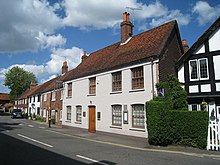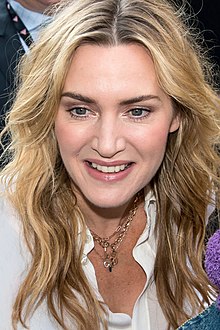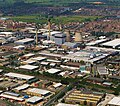Welcome to the Berkshire portal

The Royal County of Berkshire, commonly known as simply Berkshire (/ˈbɑːrkʃɪər, -ʃər/ ⓘ BARK-sheer, -shər; abbreviated Berks.), is a ceremonial county in South East England. It is bordered by Oxfordshire to the north, Buckinghamshire to the north-east, Greater London to the east, Surrey to the south-east, Hampshire to the south, and Wiltshire to the west. Reading is the largest settlement and the county town.
The county has an area of 1,263 km2 (488 sq mi) and a population of 911,403. The latter is concentrated in the east, the area closest to Greater London, and includes the county's largest towns: Reading (174,224) Slough (164,793), Bracknell (113,205), and Maidenhead (70,374). The west is rural, and its largest town is Newbury (33,841). For local government purposes Berkshire comprises six unitary authority areas: Bracknell Forest, Reading, Slough, West Berkshire, Windsor and Maidenhead, and Wokingham. The historic county included the parts of Oxfordshire south of the River Thames, which formed its northern border, but excluded Caversham and Slough.
The Berkshire Downs, a chalk downland and area of outstanding natural beauty, occupy the west of the county. They are the source of the River Kennet, which flows east through Newbury before meeting the Thames at Reading. The Thames then forms Berkshire's northern border, flowing past Maidenhead, before entering the county and flowing past Slough and Windsor. The south-east of the county contains Swinley Forest, a remnant of Windsor Forest now used as a forestry plantation.
There is evidence of prehistoric settlement on the Berkshire Downs, including the Iron Age Uffington White Horse, now in Oxfordshire. In the Anglo-Saxon period the region was contested by Mercia and Wessex, and Alfred the Great was born in Wantage, also now in Oxfordshire. Windsor Castle, which would become the official country residence of the British monarch, was built after the Norman Conquest. The county has been the site of several battles, particularly during the First English Civil War, when Reading and Wallingford were besieged two battles took place at Newbury, in 1643 and 1644. The proximity of the east of the county to London led to development from the nineteenth century, when Slough became an industrial centre and Bracknell was designated a new town. Software development and high-tech industry dominate the economy in the east, but the west remains an agricultural region. (Full article...)
Selected article
The Fat Duck is a fine dining restaurant in Bray, Berkshire, England, owned by the chef Heston Blumenthal. Housed in a 16th-century building, the Fat Duck opened on 16 August 1995. Although it originally served food similar to a French bistro, it soon acquired a reputation for precision and invention, and has been at the forefront of many modern culinary developments, such as food pairing, flavour encapsulation and multi-sensory cooking.
The number of staff in the kitchen increased from four when the Fat Duck first opened to 42, resulting in a ratio of one kitchen staff member per customer. The Fat Duck gained its first Michelin star in 1999, its second in 2002 and its third in 2004, making it one of eight restaurants in the United Kingdom to earn three Michelin stars. It lost its three stars in 2016, as it was under renovation, preventing it from being open for assessment. It regained all three stars in the following year.
The Fat Duck is known for its fourteen-course tasting menu featuring dishes such as nitro-scrambled egg and bacon ice cream, an Alice in Wonderland-inspired mock turtle soup involving a bouillon packet made up to look like a fob watch dissolved in tea, and a dish called Sound of the Sea which includes an audio element. It has an associated laboratory where Blumenthal and his team develop new dish concepts. In 2009, the Fat Duck suffered from the largest norovirus outbreak ever documented at a restaurant, with more than 400 diners falling ill. (Full article...)
Selected biography
Kate Elizabeth Winslet CBE (/ˈwɪnzlət/; born 5 October 1975) is an English actress. Known for her roles as headstrong and complicated women in independent films, particularly period dramas, she has received numerous accolades, including an Academy Award, a Grammy Award, two Primetime Emmy Awards, five BAFTA Awards and five Golden Globe Awards. Time magazine named Winslet one of the 100 most influential people in the world in 2009 and 2021. She was appointed Commander of the Order of the British Empire (CBE) in 2012.
Winslet studied drama at the Redroofs Theatre School. Her first screen appearance, at age 15, was in the British television series Dark Season (1991). She made her film debut playing a teenage murderess in Heavenly Creatures (1994), and went on to win a BAFTA Award for playing Marianne Dashwood in Sense and Sensibility (1995). Global stardom followed with her leading role in James Cameron's epic romance Titanic (1997), which was the highest-grossing film at the time. Winslet then eschewed parts in blockbusters in favour of critically acclaimed period pieces, including Quills (2000) and Iris (2001).
The science fiction romance Eternal Sunshine of the Spotless Mind (2004), in which Winslet was cast against type in a contemporary setting, proved to be a turning point in her career, and she gained further recognition for her performances in Finding Neverland (2004), Little Children (2006), Revolutionary Road (2008), and The Reader (2008). For playing a former Nazi camp guard in the latter, she won the BAFTA Award and the Academy Award for Best Actress. Winslet's portrayal of Joanna Hoffman in the biopic Steve Jobs (2015) won her another BAFTA Award, and she received two Primetime Emmy Awards for her performances in the HBO miniseries Mildred Pierce (2011) and Mare of Easttown (2021). In 2022, she produced and starred in the single drama "I Am Ruth", winning two BAFTA TV Awards, and played a supporting role through motion capture in Cameron's top-grossing science fiction film Avatar: The Way of Water.
For her narration of a short story in the audiobook Listen to the Storyteller (1999), Winslet won a Grammy Award. She performed the song "What If" for the soundtrack of her film, Christmas Carol: The Movie (2001). A co-founder of the charity Golden Hat Foundation, which aims to create autism awareness, Winslet has also written a book on the topic. Divorced from film directors Jim Threapleton and Sam Mendes, Winslet has been married to businessman Edward Abel Smith since 2012. She has a child from each marriage, including actress Mia Threapleton. (Full article...)
Topics
History: Battle of Reading (871) • Battle of Reading (1688) • First Battle of Newbury • Second Battle of Newbury • Siege of Reading
Geography: River Thames • Swinley Forest • The Ridgeway • Walbury Hill • Windsor Great Park
Towns: Ascot • Bracknell • Crowthorne • Earley • Eton • Hungerford • Maidenhead • Newbury • Reading • Sandhurst • Slough • Thatcham • Windsor • Wokingham • Woodley
Politics: Parliamentary constituencies • Parliamentary representation
Culture: Henley Royal Regatta • Museum of English Rural Life • Reading festival • Windsor Castle
Selected pictures
Did you know
- ... that comic book artist Barry Windsor-Smith wrote, drew, inked, and lettered every page of his graphic novel Monsters by himself?
- ... that today's funeral procession of Elizabeth II to Windsor Castle started at the gate to Shaw Farm?
- ... that Herbert James Gunn used a paper cut-out of Princess Elizabeth's corgi dog to help him paint his Conversation Piece at the Royal Lodge, Windsor?
- ... that three gasholders at the Windsor Street Gasworks were painted in the claret and blue colours of local football team Aston Villa?
Categories
Related portals
WikiProjects
Wikimedia
The following Wikimedia Foundation sister projects provide more on this subject:
-
 Commons
Commons
Free media repository -
 Wikibooks
Wikibooks
Free textbooks and manuals -
 Wikidata
Wikidata
Free knowledge base -
 Wikinews
Wikinews
Free-content news -
 Wikiquote
Wikiquote
Collection of quotations -
 Wikisource
Wikisource
Free-content library -
 Wikiversity
Wikiversity
Free learning tools -
 Wikivoyage
Wikivoyage
Free travel guide -
 Wiktionary
Wiktionary
Dictionary and thesaurus

























